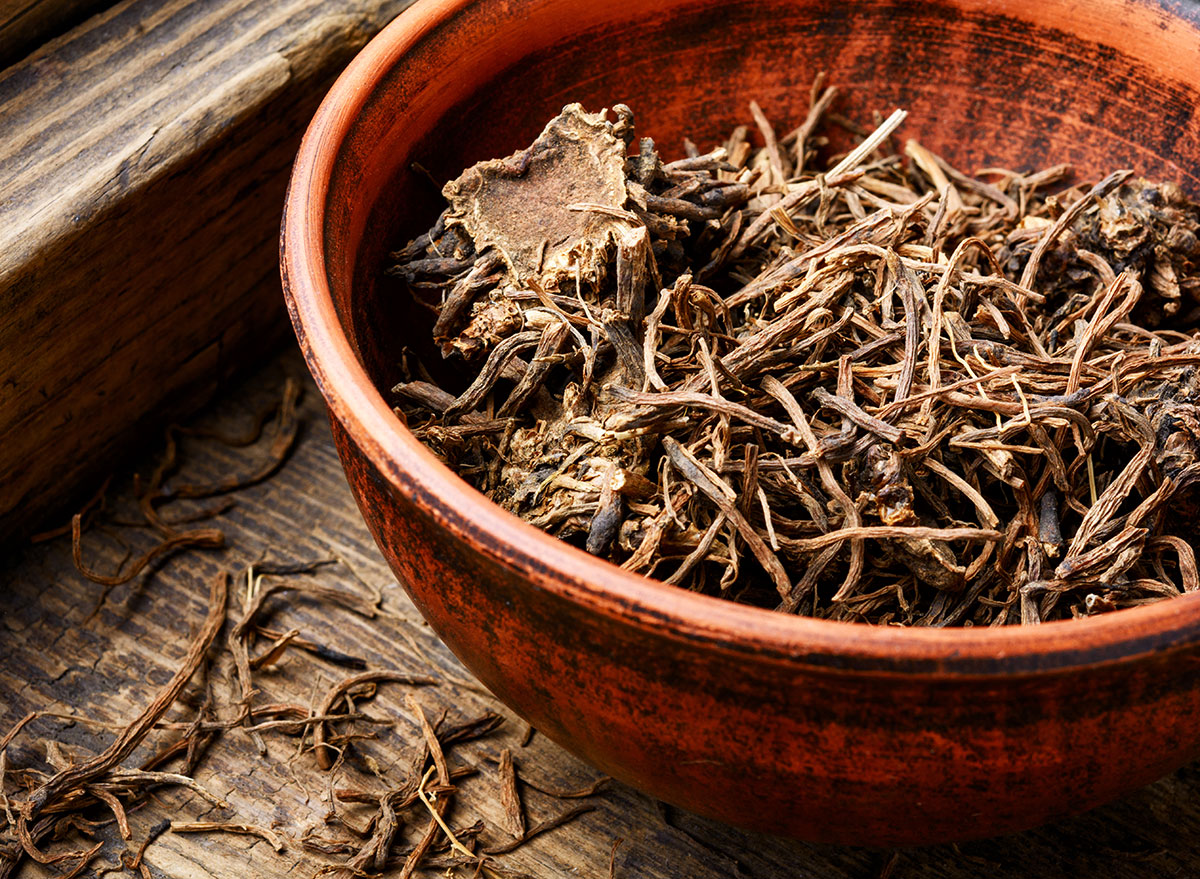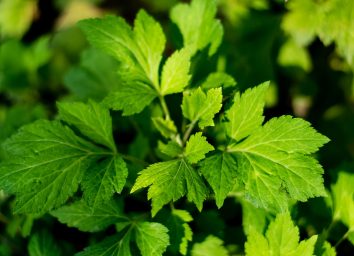Valerian Root: What To Know About the Natural Sleep Aid

Nothing is more frustrating than a bad night’s sleep. It’s estimated that insomnia affects at least one-third of the adult population worldwide. If you’re trying to treat your insomnia naturally, you may have looked into things like foods that can help you get better sleep. But if you still find yourself tossing and turning until the morning, you may want to try an over-the-counted supplement that’ll help you get those zzzs in. Valerian is one choice recommended to promote quality sleep, but it’s worth learning more about its benefits before trying.
What is valerian?
This perennial plant grows naturally in Europe and Asia and is now established in North America. It grows tall with tiny pink and white flowers that smell a bit like vanilla, but the leaves have a nasty odor, often described like stinky feet. The valerian products sold in the United States are made from the roots and stems of the plant. They come in the form of extracts, teas, tinctures, dried plants, capsules, or tablets.
What are the health benefits of valerian?
Ancient Greeks and Romans used valerian as a medicinal herb to treat insomnia. Since then, it’s also been used for epilepsy, gastrointestinal distress, and attention deficit disorder throughout history, though those uses don’t have scientific research behind them.
Proverbially, valerian has mostly been used to help with sleeplessness, although the exact compound in the plant that assists with deep sleep hasn’t yet been isolated. It is suspected that all the components work together to promote rest, but more research is needed for conclusive results. Nutritionists Barbara Moschitta, MPS RDN, states that valerian can be beneficial in helping short-term sleep disturbances, “If it’s for short term use, then it can be effective. It works on the central nervous system and relaxes it.”
There are some indications that valerian can be used to lower blood pressure and help the digestive system work, though these haven’t been proven. It may also have some promising benefits in controlling migraine pain and rheumatism.
But some studies have shown that valerian may help reduce muscle spasms or cramps, and could help women who suffer from pre-menstrual syndrome (PMS).
How much valerian do I take?
When valerian is added to commercial teas, like the Traditional Medicinals Nighty Night Extra tea, it is typically mixed with other relaxing herbs like passionflower and lemon balm. The dosage in a bag of tea is 450 milligrams per serving.
The American Family Physician website confirms similar dosage information: “Based on the reviewed studies, the effective dosage of valerian root extract for treatment of insomnia ranges from 300 to 600 milligrams. An equivalent dose of dried herbal valerian root is 2 to 3 grams, soaked in one cup of hot water for 10 to 15 minutes. The product should be ingested 30 minutes to two hours before bedtime.”
Does anything interact with valerian?
Moschitta urges caution when taking any supplement, but especially one that may cause drowsiness, “You have to be very careful. If you’re on other medication or other types of anti-anxiety medications, they could interact.”
Valerian can increase the sedation effects of narcotics and interacts with other supplements, like St. John’s Wort. However, most people don’t experience any side effects when taking valerian and it’s considered safe for the treatment of insomnia, especially if used consistently over a few weeks.
The Mayo Clinic warns that chronic sleeplessness can be indicative of other conditions. It’s always best to consult your doctor before changing your health regimen.








